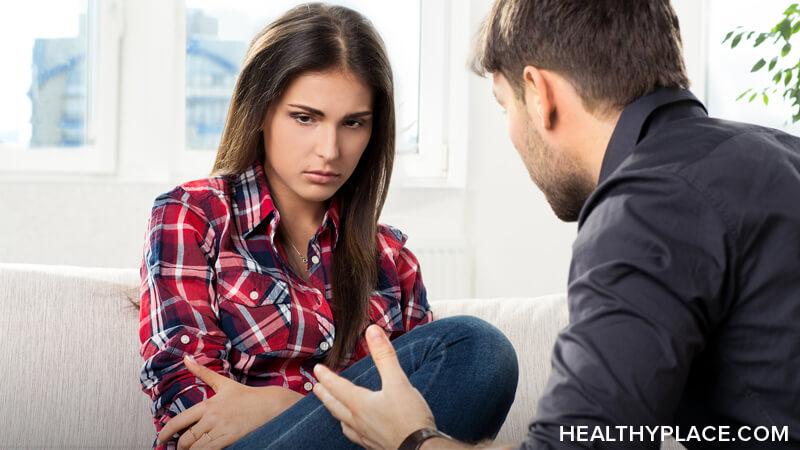How to Cope with Toxic People in Your Life

We can't get away from having toxic people in our life sometimes. In a perfect world, we would never encounter someone unhealthy for us. The people with whom we hold company would all be healthy influences. Unfortunately, as those of us with posttraumatic stress disorder (PTSD) likely already know, we do not live in a perfect world. Although we can choose our friends, and we can migrate toward or away from certain co-workers, acquaintances, and even family members, we cannot always prevent having some toxic people in our life.
It is notoriously difficult to avoid at least one person who is unhealthy--or even downright triggering--during holidays. So what better time to discuss what to do and how to stay emotionally safe when you can’t avoid involvement with negative people?
Handling the Toxic People in Your Life
How to Deal with Unhealthy People in Short-Term Situations
If you are (relatively) lucky enough to know in advance that you’ll be around someone who is not the best influence on your mental wellness, you have a slight advantage. You can mentally steel yourself for communicating with this person by envisioning these interactions as being short and to-the-point. Practice asserting yourself. Ask any supportive people who will be present to help extricate you from a situation in which this person persists in bothering you.
If you have no forewarning that you’ll be seeing an unhealthy person, you won’t have a chance to specifically prepare for the encounter. This will certainly make it more stressful, but it doesn’t have to ruin the whole event. Living with PTSD, I know how difficult it can be to control anger, but keeping your cool and remaining cordial around this person will help prevent a blowout fight from occurring. That does not mean being a doormat. You don’t have to let this person insult you, nag you, or act passive-aggressive toward you—but it will go a long way if you respond by directly setting boundaries, rather than insulting her back. It's easier said than done but definitely worth a legitimate try.
Dealing with Toxic People in Your Life in the Long-Term
It's not always possible to avoid unhealthy influences and toxic people coming into your life. As powerful women like Salma Hayek have brought to the public attention recently, we don’t always have a choice about whether or not we get to work with unhealthy people on a long-term basis. In her recent New York Times Op-Ed piece, she describes the ordeals Harvey Weinstein put her through in order to ultimately produce and film her passion-project Frida. These ordeals included repeated sexual harassment, character insults, and near-impossible demands, like casting prominent actors in smaller roles (that Hayek impressively fulfilled).1 As her story and the stories of many other people illustrate, we cannot always avoid being around people who are unhealthy—or in Hayek's case, downright abusive—in the long term.
So what do you do if you have, say, an inherited family member whom you discover is emotionally abusive? It’s difficult enough to cut off your own parents, but you can’t exactly force your partner to let go of toxic family members if he’s not ready or doesn’t want to. Or you could be in a situation like Hayek, in which you’ve accepted a wonderful job offer only to learn your boss creates a toxic workplace. Like me when I was a teenager, you could find that you’ve fallen in love with a person who is extremely abusive, and for whatever reason, you may not yet be ready or able to leave. There are many permutations of this reality that can occur, but the ultimate question is: when faced with a long-term unhealthy relationship, how do you detach from unhealthy people and take care of yourself?
Staying Healthy Around Toxic People in Your Life
One tactic my therapist has been helping me master is not taking to heart the emotionally abusive words of others. If someone blames me for something that is not my fault, I don’t have to believe him or her. That may sound obvious, but living with PTSD often means living with crippling self-doubt and shame. Hearing someone—especially someone you trust—bring you down can really interfere with your self-image.
Another idea to is to practice self-compassion. When you do make a mistake, or fail at something, forgive yourself. If you have already made peace with your failure, it will be much harder for an unhealthy person to use it against you.
Finally, try to limit time with this person. If that’s impossible, try your best to limit alone time with this person. If he’s a boss or co-worker, try to remain in spaces that others also occupy. If she’s a family member, do the same thing—avoid, as best as you can, being completely alone with her. Although this is not always true, adult bullies tend to enact their harm in private. If you have witnesses around, the person is much less likely to act out.
When You Can’t Take Care of Your Mental Health, Focus On Your Physical Health
Sometimes the people and/or circumstances in our lives make it truly impossible to focus on our PTSD recovery. As much as we don’t want to, we have to drop therapy appointments, isolate, stay up too late, and beat ourselves up for all of it because our circumstances are just that overwhelming.
Firstly: remember it will pass. Secondly: try to take care of yourself physically, if you can’t take care of yourself mentally.
In this video, I discuss some steps you can take to maintain physical health when optimal mental health is temporarily inaccessible.
Reference
- Hayek, S. (2017, December 13). Harvey Weinstein Is My Monster Too. Retrieved December 20, 2017.
APA Reference
Brico, E.
(2017, December 20). How to Cope with Toxic People in Your Life, HealthyPlace. Retrieved
on 2026, March 4 from https://www.healthyplace.com/blogs/traumaptsdblog/2017/12/unhealthy-people